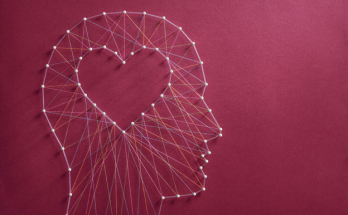For decades, many addiction treatment programs focused almost exclusively on stopping substance use. Detox, abstinence, and relapse prevention were the main priorities. But as science and lived experience have shown, recovery isn’t just about saying no to drugs or alcohol, it’s about addressing why someone felt they needed substances in the first place.
Behind most stories of addiction lies a story of mental health. Anxiety. Depression. Trauma. Unresolved pain. Without caring for these deeper wounds, recovery often feels fragile, incomplete, or unsustainable.
This is why mental health programs are often described as the missing piece in lasting addiction recovery.
The Link Between Addiction and Mental Health
Research consistently shows that substance use disorders and mental health conditions are intertwined:
- Nearly 50% of people with addiction also struggle with a mental health disorder.
- Anxiety, depression, and PTSD are among the most common co-occurring conditions.
- Many people use substances as a way to self-medicate symptoms of trauma or mental illness.
For example:
- Someone with social anxiety may drink before every event.
- A person with unresolved trauma may use opioids to numb emotional flashbacks.
- Depression can push people toward stimulants for energy or alcohol for escape.
Without addressing these mental health conditions, recovery remains incomplete. Sobriety may stop the substance use, but the emotional pain persists often leading to relapse.
Why Mental Health Support Is the “Missing Piece”
Addiction recovery programs that ignore mental health often feel like putting a bandage on a deeper wound. People may detox successfully but struggle with ongoing anxiety, panic attacks, or depressive episodes.
Mental health therapy provides the tools to:
- Understand and regulate emotions
- Heal from past trauma
- Manage stress without turning to substances
- Rebuild self-esteem and resilience
This integrated approach is what makes recovery sustainable and why Mental Health Therapy Programs in Massachusetts are at the forefront of modern treatment.
Types of Mental Health Therapy in Addiction Recovery
Different people need different approaches. That’s why recovery programs often offer a variety of evidence-based therapies to meet unique needs.
1. CBT Therapy Programs
Cognitive Behavioral Therapy (CBT) is one of the most widely used approaches. It focuses on identifying negative thought patterns that drive harmful behaviors and replacing them with healthier ways of thinking.
For addiction recovery, CBT helps clients:
- Recognize triggers and cravings
- Challenge beliefs like “I can’t handle stress without drinking”
- Build healthier coping mechanisms
- DBT Therapy Programs
Dialectical Behavior Therapy (DBT) builds on CBT but places more emphasis on emotional regulation, mindfulness, and interpersonal skills.
DBT is especially helpful for people who:
- Struggle with intense emotions
- Have a history of self-harm or suicidal thoughts
- Experience frequent conflict in relationships
In addiction treatment, DBT teaches clients how to “ride the wave” of cravings or emotions without turning to substances for relief.
- Trauma Therapy Program
Trauma is one of the strongest predictors of addiction. Childhood abuse, neglect, violence, or other traumatic experiences often leave lasting scars that substances temporarily mask.
A dedicated Trauma Therapy Program in Massachusetts helps clients:
- Process painful memories in a safe, guided environment
- Understand how trauma influences current behavior
- Build resilience and trust in themselves and others
By addressing trauma directly, clients can finally heal from the root causes of addiction.
- EMDR Therapy Programs
EMDR Therapy Programs in Massachusetts (EMDR) is a specialized therapy proven effective for trauma and PTSD. It uses guided eye movements or bilateral stimulation to help the brain reprocess traumatic memories without the same emotional intensity.
For those in recovery, EMDR can:
- Reduce flashbacks and intrusive thoughts
- Decrease emotional triggers that fuel cravings
- Help individuals move forward without being held captive by the past
How Mental Health Support Strengthens Recovery
Relapse Prevention
Many relapses occur not because someone wants to use again, but because underlying depression, anxiety, or trauma overwhelms them. Mental health therapy reduces relapse risk by giving clients healthier ways to cope.
Improved Relationships
Addiction often damages trust and communication. Therapy improves emotional regulation, empathy, and conflict resolution helping individuals rebuild relationships with loved ones.
Better Physical Health
Mental health struggles often worsen physical health issues. Addressing both together leads to improved sleep, energy, and overall well-being.
Stronger Sense of Self
Addiction often robs people of their identity. Therapy helps clients rediscover who they are outside of substances, creating a stronger foundation for long-term recovery.
Final Thoughts
If recovery has felt incomplete or if you’ve watched a loved one relapse again and again the missing piece may be untreated mental health.
Addiction recovery isn’t just about putting down the substance, it’s about healing the pain that fueled the addiction in the first place. Without mental health support, recovery can feel like a constant uphill battle. With it, recovery becomes a path to wholeness, balance, and hope. The missing piece in recovery may be the key to lasting freedom.




